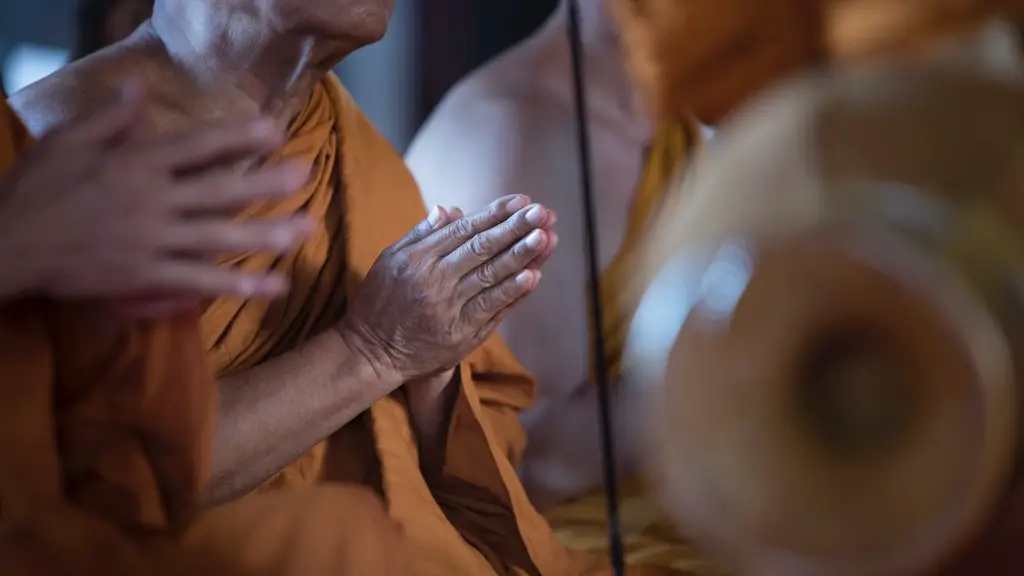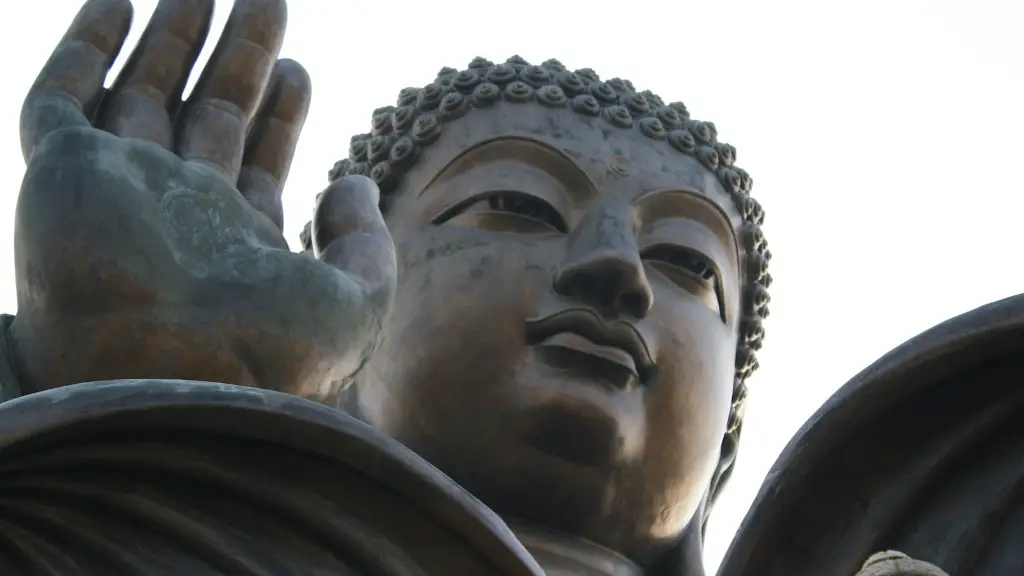Hinduism is an ancient religion with a long history. The five elements in Hinduism are air, water, fire, earth, and akasha. These five elements have played a significant role in the development and implementation of various Hindu philosophies and beliefs.
Air is seen as being the purest element in Hinduism, and it represents energy, life, and breath. In Hindu teachings, the wind god Vata is regarded as the deity of air. He is seen as wielding the power of life and death, and his breath can help souls return to their original form.
Water is thought to be an element of transformation. Hindus believe that water has the power to purify the soul and help it return to the divine source. Water is a necessary part of Hindu rituals, as it is believed to have the power to cleanse and renew the spirit.
Fire is the element of transformation and purification in Hinduism. The flame of fire is associated with death, destruction, and renewal. In Hinduism, it is believed that fire can help souls re-integrate into their divine source. The god Agni is the deity associated with fire and his power is invoked in Hindu rituals.
Earth is the element of stability, solidity, and structure in the Hindu universe. Earth is associated with the god Prithvi, and it is believed that he holds the power to protect and maintain the earth and its inhabitants. On a spiritual level, Hindus view the earth as a place of refuge and renewal.
Akasha is the element of space and it is seen as being the source of all energy in the universe. Akasha is associated with the god Indra, and it is believed that his power is capable of unifying, transforming, and renewing the entire universe. Hindus often invoke the power of akasha when performing rituals or prayers.
These five elements play an important role in Hinduism, as they are seen to be part of the manifestation of the divine force in the universe. The five elements represent various aspects of life and nature, and Hindus often invoke their power in order to connect with a higher power and seek spiritual guidance.
Air
In Hinduism, air is associated with the god Vata, and it is believed to be the purest element in the universe. Hindus believe that air gives life to all beings and is essential for the manifestation of divine energy. According to Hindu teachings, air is the bearer of both knowledge and healing, and is essential for spiritual growth and development. Through rituals and prayers, Hindus invoke the power of air in order to tap into its creative potential and bring peace and wellbeing to the soul.
Air is associated with the power of transformation and renewal. Hindus regard air as the bearer of new life and spiritual growth, and it is believed to be the source of inspiration and creativity. Through rituals and prayers, Hindus seek to invoke the power of air in order to manifest its transformative energy and manifest spiritual enlightenment.
Air is also associated with the power of healing. Hindus view air as the source of healing energy, and it is believed that the power of air can be used to heal both physical and spiritual ailments. Through prayer and ritual, Hindus seek to invoke the power of air in order to bring peace, health, and wellbeing to both body and soul.
.
Water
In Hinduism, water is associated with the god Varuna, and it is believed to be the element of transformation and purification. Hindus believe that water has the power to cleanse and renew the spirit, and it is an essential part of Hindu rituals. Through prayer and ritual, Hindus seek to invoke the power of water in order to tap into its transformative power and bring peace and wellbeing to the soul.
Water is also associated with the power of fertility and growth. Hindus regard water as the source of new life and it is believed to be the source of abundance and fertility. Through prayer and ritual, Hindus seek to invoke the power of water in order to bring about abundance and fertility in all aspects of life.
Water is also associated with the power of purification. Hindus view water as a source of spiritual healing, and it is believed to have the power to purify the soul and help it return to its divine source. Through rituals and prayers, Hindus seek to invoke the power of water in order to bring about spiritual enlightenment and renewal.
Fire
In Hinduism, fire is associated with the god Agni, and it is believed to be the element of transformation and destruction. Hindus believe that fire has the power to transform and renew the soul, and it is an essential element in Hindu rituals. Through prayer and ritual, Hindus seek to invoke the power of fire in order to tap into its creative potential and bring peace and wellbeing to the soul.
Fire is also associated with the power of destruction. Hindus regard fire as a necessary force of destruction in order to bring about renewal and transformation, and it is believed to have the power to destroy impurities and evils. Through prayer and ritual, Hindus seek to invoke the power of fire in order to manifest its destructive power and manifest spiritual enlightenment.
Fire is also associated with the power of purification. Hindus view fire as the source of purity and transformation, and it is believed to have the power to cleanse and purify the soul. Through rituals and prayers, Hindus seek to invoke the power of fire in order to bring about spiritual renewal and enlightenment.
Earth
In Hinduism, earth is associated with the god Prithvi, and it is believed to be the element of stability and order. Hindus believe that earth provides a stable foundation for spiritual growth and development, and it is an essential part of Hindu rituals. Through prayer and ritual, Hindus seek to invoke the power of earth in order to tap into its nourishing power and bring peace and wellbeing to the soul.
Earth is also associated with the power of fertility and growth. Hindus regard earth as being the source of new life and abundance, and it is believed to have the power to bring about abundance and fertility in all aspects of life. Through prayer and ritual, Hindus seek to invoke the power of earth in order to manifest its nourishing power and manifest spiritual enlightenment.
Earth is also associated with the power of protection. Hindus view earth as a place of refuge and renewal, and it is believed to be the source of protection and safety. Through rituals and prayers, Hindus seek to invoke the power of earth in order to bring about protection and safety in all aspects of life.
Akasha
In Hinduism, akasha is associated with the god Indra, and it is believed to be the element of space and the source of all energy in the universe. Hindus believe that akasha has the power to unify, transform, and renew the entire universe, and it is an essential part of Hindu rituals. Through prayer and ritual, Hindus seek to invoke the power of akasha in order to tap into its unifying power and bring peace and wellbeing to the soul.
Akasha is also associated with the power of renewal. Hindus view akasha as the source of spiritual renewal and transformation, and it is believed to have the power to renew and transform the soul. Through rituals and prayers, Hindus seek to invoke the power of akasha in order to bring about spiritual renewal and enlightenment.
Akasha is also associated with the power of transformation. Hindus regard akasha as the source of transformation and renewal, and it is believed to have the power to transform and renew the soul. Through prayer and ritual, Hindus seek to invoke the power of akasha in order to manifest its transformative power and manifest spiritual enlightenment.


